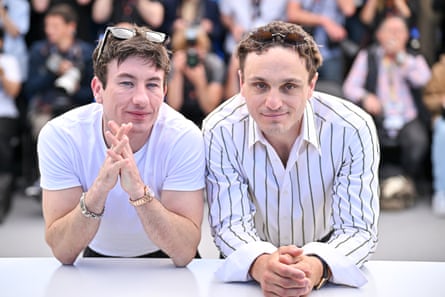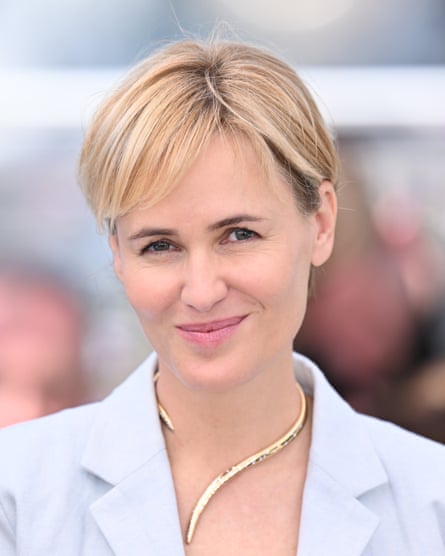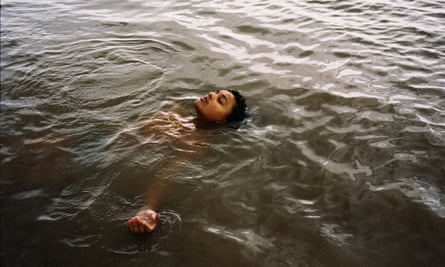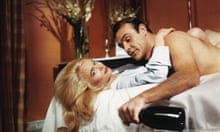Is Britain leading the way in protecting young people and children from the potential traumas of working on a film set, or has it all gone far too far? Two of the most prominent European stars attending the Cannes film festival, both with high-profile premieres, have very different views.
Franz Rogowski, the acclaimed German actor who plays a key role in Bird, British director Andrea Arnold’s contender for the top Palme d’Or prize, said this weekend that the proliferation of chaperones and intimacy coordinators that had been required on the shoot on location in Kent qualified as well-intended “madness”.
Speaking after the premiere of the hard-hitting drama on Friday night, the 38-year-old actor said the high number of handlers employed to ensure the wellbeing of all the underage and child actors in the film had felt excessive to him.
“It feels a bit off-balance,” said Rogowski, who went on to point out that children already have many other damaging freedoms online where they are more exposed to danger and not protected.

But Judith Godrèche, the French actor and director who has shaken up the Croisette in the opening days of the festival with her personal crusade against abuse in the French film industry, said she believed that Britain, and in particular the BBC, was at the forefront of improvements in the way young people and children employed in film-making are looked after. She has made her own recent accusations that she was abused while working as an underage actor, allegations that are denied.
Speaking at a public event staged above the famous red carpet of the Palais du Festival, Godrèche said: “It has been interesting to compare the reactions to #MeToo in the United States and in the UK. The BBC, I believe, have very serious and rigid rules protecting minors on set.” The French government and members of the National Assembly need to take note, she added: “They cannot continue to turn a blind eye to this.”
after newsletter promotion

Her short film, Moi Aussi, which premiered on Wednesday night, drew on the testimony of the many hundreds of women and men who have told her they were mistreated and who have contacted her since she first spoke out about the problem six months ago at the French César awards.
For Rogowski, though, the efforts now made in Britain are in danger of inhibiting creativity. His scenes in Bird involve several small children and teenagers who are depicted in situations of social neglect and even imminent harm. “It’s true that Andrea is very careful and respectful, but it would have been great sometimes if there was a bit more trust – and I think that’s a cultural thing,” Rogowski told the industry journal Variety this weekend. “We are so scared nowadays to expose our kids to maybe a swear word – which is ridiculous, because we allow them to use social media and YouTube.”
While Britain may not yet be a beacon of good regulation, a woman who is in Cannes to talk about safety and good practice in the industry believes that real progress is happening and that further improvements are on the way. Sara Whybrew, the director of skills and workforce development at the British Film Institute, told the Observer: “We do have many good protections designed for children and young people working in the sector, but there is always more work to do.”

Whybrew believes the issue is to achieve greater compliance with the laws and rules that are already in place. She added that regulation is hard to impose in an industry that relies on short-term contracts and where “a culture of fear” can lead workers to accept longer hours than they should and, in extreme cases, to submit to other forms of bad treatment or abuse. “It is a particularly unstable industry anyway, at the moment and people sometimes are still not calling things out. Sadly, harassment in all its forms is still very present,” she said.
Whybrew said that Godrèche and others who have spoken out within the #MeToo movement so far have helped by making “the necessary noise in order to support the conversations that are now leading to action”.








